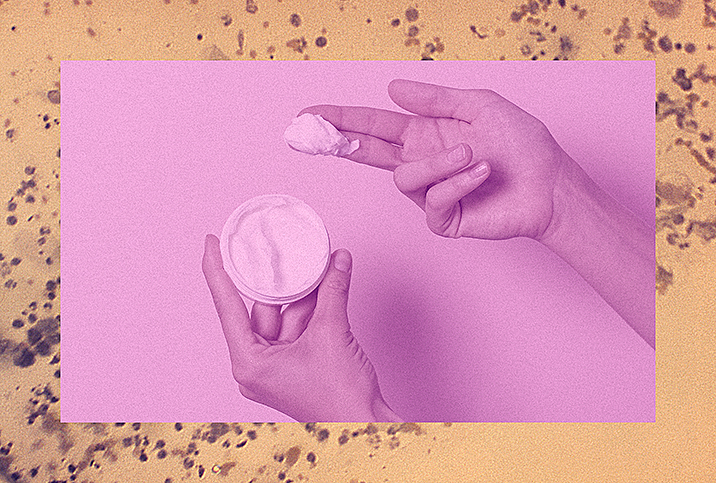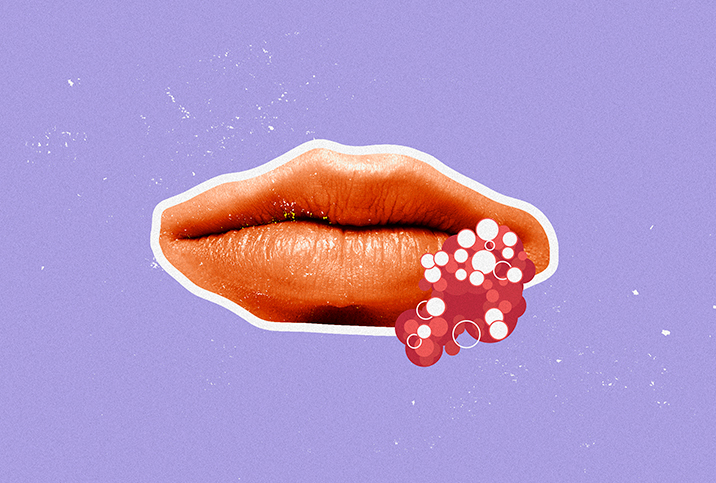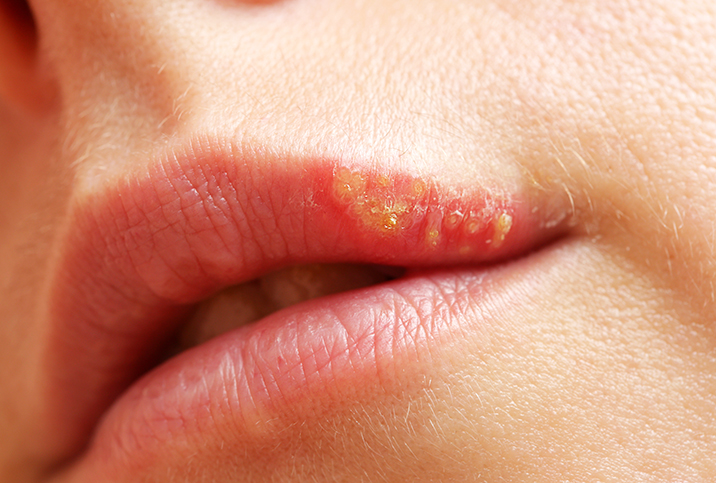Treating Cold Sores Caused by Herpes

The herpes simplex virus (HSV) can affect different areas of your body, including your mouth and genitals. HSV-1 typically causes oral herpes, while HSV-2 usually causes genital herpes. The virus can cause cold sores, or small fluid-filled blisters sometimes called fever blisters, that can be painful and itchy. Though herpes doesn't usually lead to any serious health problems, the cold sores can be unpleasant.
If you get cold sores from herpes, it's important to treat them as soon as possible to avoid spreading herpes to sexual partners. Here's what you should know about herpes and how you can treat cold sores caused by the herpes virus.
What is herpes?
Herpes is a virus passed through skin-to-skin contact during oral, vaginal or anal sex or kissing. If you have herpes, it's important to tell your sexual partners upfront and immediately. HSV is especially contagious when the afflicted person suffers an outbreak. You can prevent your sexual partner from contracting the virus by avoiding sexual contact during an outbreak.
The virus causes cold sores around the mouth or on or around the genitals. The sores can last up to two weeks and are contagious until they scab over and begin the healing process.
Some people who have herpes never experience an outbreak, while others have them infrequently. Some people notice fewer and fewer outbreaks as they age or undergo treatment.
It's not known exactly what triggers an outbreak, but fatigue, stress, hormones, menstruation and exposure to sunlight may all be contributing factors.
Herpes can't be cured, but there are ways to treat cold sores caused by the virus.
Treating cold sores
Cold sores can heal on their own without any medication, but many people prefer to treat them to shorten the outbreak and alleviate the symptoms.
The first outbreak of herpes simplex is often the worst, but your doctor can prescribe topical medication to help it heal quickly.
Antiviral creams can help alleviate the symptoms associated with cold sores. When applying the cream, gently pat it onto the affected area to ensure you don't spread the infection. Wash your hands before and after applying the cream to keep the infection from getting worse and to further prevent the spread.
Taking prescribed pills or getting an injection can also shorten the outbreak. For the best results, take the medication within 24 hours of feeling the initial outbreak of symptoms.
You can manage the pain caused by the outbreaks by taking a warm bath, keeping the area clean with salt water, applying petroleum jelly to the affected areas when urinating, holding a warm or cool compress to the affected area, keeping the area dry, wearing loose clothing and taking over-the-counter pain medication.
Preventing cold sores
If you have frequent outbreaks, your doctor may recommend antiviral drugs, such as acyclovir, which can prevent them. In the short term, these medications can treat cold sores around the mouth and genitals while alleviating pain. When taken regularly, they can help prevent outbreaks altogether.
Additionally, daily use of antiviral medication can help prevent spreading the virus to sexual partners.
Taking care of your health may help prevent future outbreaks. Getting enough sleep, eating healthy, exercising and managing stress may help minimize factors responsible for outbreaks.
If you have herpes, treating your outbreaks can help shorten the duration or prevent them in the future. You can live a normal life and have a healthy sex life even if you have herpes. Try the recommended treatment options to see which works best for you.


















